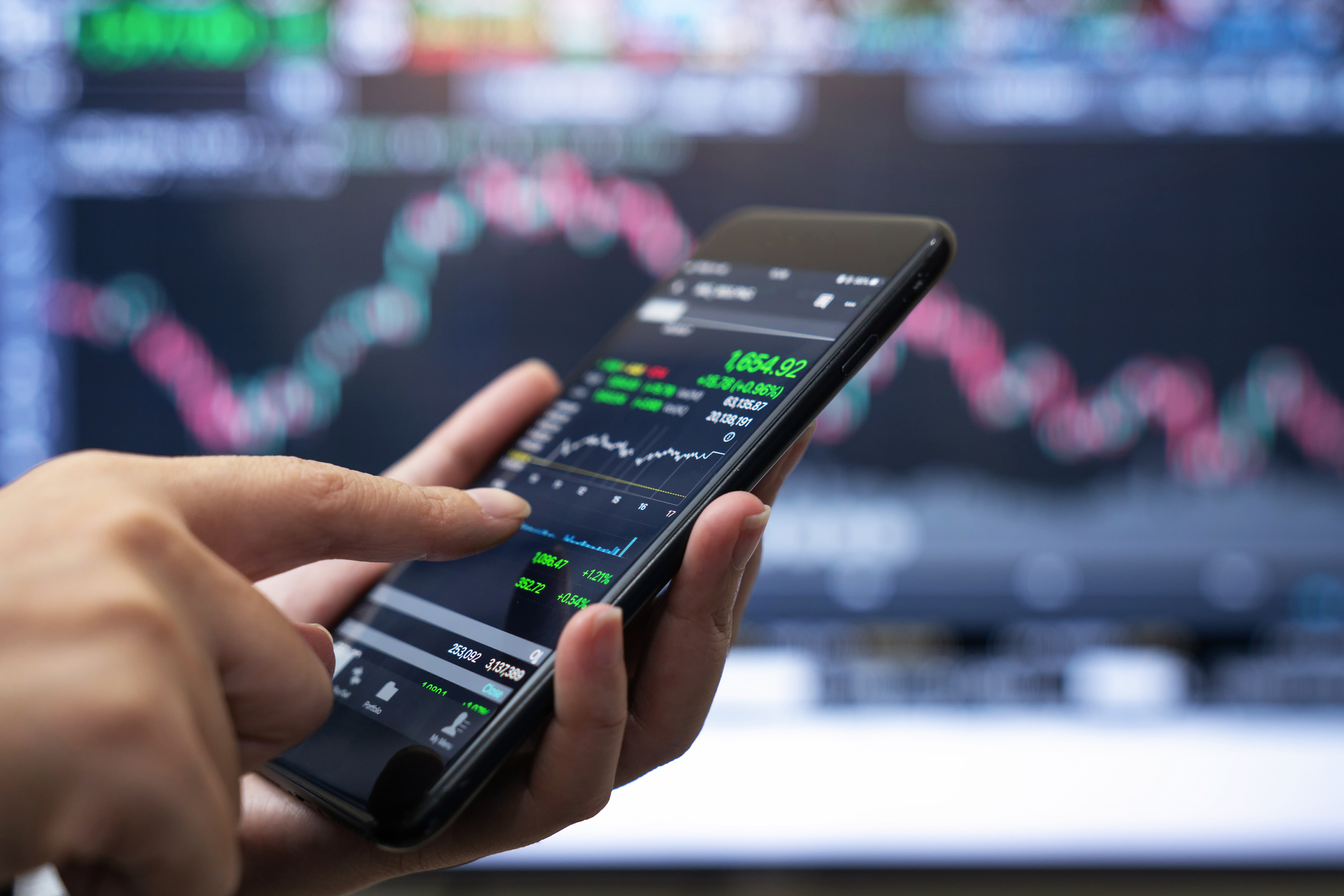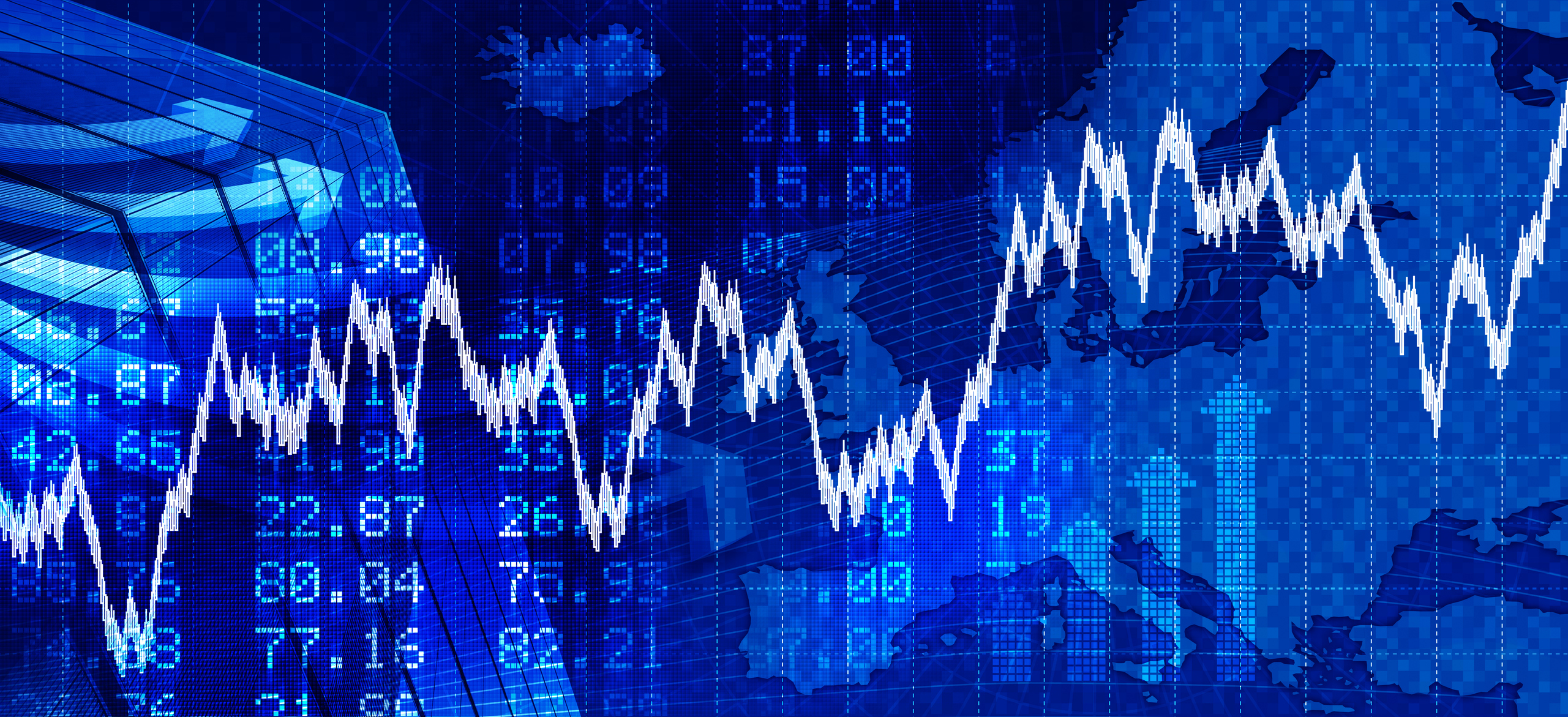Who's secretly been buying up gold reserves?
Gold has had a tough time of it recently. But evidence of 'stealth buying' in the market suggests that there's a lot more demand out there for the yellow metal than even the most bullish commentators had realised...

Get the latest financial news, insights and expert analysis from our award-winning MoneyWeek team, to help you understand what really matters when it comes to your finances.
You are now subscribed
Your newsletter sign-up was successful
Want to add more newsletters?

Twice daily
MoneyWeek
Get the latest financial news, insights and expert analysis from our award-winning MoneyWeek team, to help you understand what really matters when it comes to your finances.

Four times a week
Look After My Bills
Sign up to our free money-saving newsletter, filled with the latest news and expert advice to help you find the best tips and deals for managing your bills. Start saving today!
This feature is part of our daily Money Morning email. If you'd like to sign up, please click here: sign up for Money Morning.
Gold's had a tough time over the past month or so but the yellow metal could well be in demand again soon.
Yet more ranting rhetoric from the leaders of Iran has helped to keep the gold price above $630 an ounce, despite the dollar strengthening on expectations that the Federal Reserve will keep hiking US interest rates. That's not to mention the impact on oil, another of our favourites but more on Iran later.
MoneyWeek
Subscribe to MoneyWeek today and get your first six magazine issues absolutely FREE

Sign up to Money Morning
Don't miss the latest investment and personal finances news, market analysis, plus money-saving tips with our free twice-daily newsletter
Don't miss the latest investment and personal finances news, market analysis, plus money-saving tips with our free twice-daily newsletter
Geopolitical instability may be helping to maintain investors' interest in gold in the short term. But it seems there are more fundamental reasons behind its strength.
According to The Telegraph, previously undiscovered "stealth demand" means that investors have actually been buying eight times more gold than traders realised...
The ever-reliable Ambrose Evans-Pritchard reports in The Telegraph that Swiss bank UBS has found that funds and investors are allocating far more of their money to gold than current estimates would suggest.
UBS, which is the world's biggest gold trader, said that information gleaned from its trading floor suggests that buyers are spending about a fifth of the money they put into commodities on precious metals.
This is a lot more than the weighting of precious metals in commodities index tracking funds would suggest. These funds are normally used as indicators of demand - but UBS argues that this gives "a deeply misleading impression, obscuring a silent shift of funds from oil into gold."
So how has all this extra money been hidden and who's buying?
"The extra volume in gold buying has been channelled through the London Bullion Association, eclipsing the Comex futures market in New York usually monitored by speculators for clues," says The Telegraph.
Among the big buyers is Russia. The country's gold reserves have risen to $237bn, making it the world's fourth biggest holder of gold.
That gold pile will just keep getting bigger. President Putin wants the Russian central bank to hold at least 10% of its foreign currency reserves in gold, double the previous reserve level of 5%.
The country has foreign currency reserves equivalent to about 10% of its gross domestic product. So as its economy grows, it has to keep buying up more gold to maintain its 10% reserve level.
And of course, with oil prices soaring, Russia is likely to maintain a hefty current account surplus for the foreseeable future.
As we noted above, the latest diatribe from Iran is behind the surge in the oil price seen at the start of this week.
Geopolitical tension is always being blamed for movements in the oil market, of course. As we've said before, it's very easy with hindsight to take a fairly innocuous event or comment in the Gulf region and then tie it into whatever happened to oil prices that day.
But as the world's fourth-largest oil exporter, Iran has significant influence. So it's little surprise that the latest comments from Iran's supreme leader Ali Khamenei had the market in a spin.
Addressing the US at the weekend, he said: "If you make a wrong move regarding Iran, definitely the energy flow in this region will be seriously endangered."
The speech was particularly damaging as, according to the Capuchinomics financial newsletter, Khamenei "was seen by some as a more rational and mature voice for the Iranian government" than President Mahmoud Ahmadinejad. "No longer. Khamenei doing his best impersonation of President Bush's bring em on' rhetoric threw down the gauntlet to the US".
If Iran really does act on its threats to halt shipments, the price of oil would surge. Capuchinomics reckons that an Iranian supply disruption would result in oil going to $150 a barrel. "The US must deal with the harsh reality that Iran can now dictate the terms for the oil trade".
If oil goes to $150 a barrel, you can bet that gold will be rising right behind it. And it was on the basis of higher oil prices that investment bank Citigroup has upgraded its gold price forecasts.
The group expects the metal to rally to more than $730 an ounce again this year. Analyst Jonathan Battershill said that ongoing strength in oil prices will keep investors worried about inflation. If inflation rises, that means higher interest rates, which would slow the US economy and hurt the dollar.
"All of these factors would result in stronger gold prices," said Citigroup's Jonathan Battershill.
It's not easy investing in today's volatile market. Many commentators believe gold has further to fall. But timing markets is a risky business. Gold may fall if you jump in now but it may also rise out of reach if you wait too long.
That's why we generally prefer to focus on the fundamentals. And if central banks and pension funds keep buying, and the dollar keeps getting weaker which we believe it will then gold's bull run is far from over. If you'd like to know more about how to invest in gold, then visit our website here: Invest in gold
Turning to the stock markets...
The FTSE 100 ended down just 2 points at 5,762. BAA was again the main riser, up 3% to 928p as the bidding war between Goldman Sachs and Spain's Grupo Ferrovial over the airport operator continued to heat up - more on that below. For a full market report, see: London market close
Over in continental Europe, the Paris Cac 40 fell 43 points to 4,916, while the German Dax fell 66 to close at 5,621.
Across the Atlantic, stocks plunged as Federal Reserve chief Ben Bernanke warned that growth in inflation could be worse than expected. The Dow Jones Industrial Average fell 199 points to 11,048, while the S&P 500 dived 22 to 1,265. The tech-heavy Nasdaq fell 49 to 2,169.
The fear of higher US interest rates battered Asian markets too. The Nikkei 225 fell 283 points to 15,384, its lowest close since January 23rd. Exporters were again among the main fallers on fears that US consumers will have to stop spending.
This morning, oil was easing back in New York, trading at around $72.20 a barrel. Brent crude was also lower, trading at around $69.50.
Meanwhile, spot gold was lower, trading at around $636 an ounce as the dollar strengthened, while silver traded at around $11.95.
And here in the UK, the fight for UK airports operator BAA continues. BAA says it has accepted a 950.25p-a-share deal from Spain's Grupo Ferrovial. But the deal might not be sealed yet - Goldman Sachs has offered 955.25p a share for the group.
And our two recommended articles for today...
How can you be a happier investor this summer?
- Plenty of research suggests that money can't buy you happiness. But one thing's for sure, says MoneyWeek editor Merryn Somerset Webb. Having money might not make you happy, but losing it can certainly make you unhappy - and in these volatile times, that's a real risk. To find out where she believes most investors would be happier putting their money this summer, click here: How can you be a happier investor this summer?
Four bear market warning signs to watch out for
- The US housing market is increasingly fragile. The rebound in the UK seems to be over. Stock markets are in turmoil. Is this a passing correction - or will things get worse? There are four key warning signs that investors should watch out for, say Andrew Selsby and John Robson in RH Asset Management. To find out what they are, see: Four bear market warning signs to watch out for
Get the latest financial news, insights and expert analysis from our award-winning MoneyWeek team, to help you understand what really matters when it comes to your finances.

-
 Early signs of the AI apocalypse?
Early signs of the AI apocalypse?Uncertainty is rife as investors question what the impact of AI will be.
-
 Reach for the stars to boost Britain's space industry
Reach for the stars to boost Britain's space industryopinion We can’t afford to neglect Britain's space industry. Unfortunately, the government is taking completely the wrong approach, says Matthew Lynn
-
 How a dovish Federal Reserve could affect you
How a dovish Federal Reserve could affect youTrump’s pick for the US Federal Reserve is not so much of a yes-man as his rival, but interest rates will still come down quickly, says Cris Sholto Heaton
-
 'Investors should brace for Trump’s great inflation'
'Investors should brace for Trump’s great inflation'Opinion Donald Trump's actions against Federal Reserve chair Jerome Powell will likely stoke rising prices. Investors should prepare for the worst, says Matthew Lynn
-
 The challenge with currency hedging
The challenge with currency hedgingA weaker dollar will make currency hedges more appealing, but volatile rates may complicate the results
-
 Can Donald Trump fire Jay Powell – and what do his threats mean for investors?
Can Donald Trump fire Jay Powell – and what do his threats mean for investors?Donald Trump has been vocal in his criticism of Jerome "Jay" Powell, chairman of the Federal Reserve. What do his threats to fire him mean for markets and investors?
-
 Freetrade’s new easy-access funds aim to beat top savings rates
Freetrade’s new easy-access funds aim to beat top savings ratesFreetrade has launched an easy-access exchange traded fund (ETF) range - here’s how the ETFs work and how they compare to the savings market
-
 Go for value stocks to insure your portfolio against shocks, says James Montier
Go for value stocks to insure your portfolio against shocks, says James MontierInterview James Montier, at investment management group GMO, discusses value stocks and slow-burn Minsky moments with MoneyWeek.
-
 Where do we go from here?
Where do we go from here?Features A new series of interviews from MoneyWeek
-
 As China reopens, why pick an income strategy?
As China reopens, why pick an income strategy?Advertisement Feature Yoojeong Oh, Investment Manager, abrdn Asian Income Fund Limited